by Simon Overton, Educational Enhancement Co-ordinator, University of Sussex
In a world increasingly conscious of its environmental footprint, the responsibility to adopt sustainable practices falls not just on individuals, but also on organisations. At the heart of this movement lies the concept of the green office – a space where eco-consciousness is integrated into every aspect of daily operations.
For our team, Educational Enhancement (or EE), the decision to transition to a more environmentally friendly workspace wasn’t just about following a trend; it was a reflection of our commitment to minimising our impact on the planet whilst still being efficient, inclusive, looking after everyone’s well-being and being a little bit playful at the same time. With this ethos guiding us, as well as the Green Impact toolkit, we embarked on a journey to transform our office into a beacon of sustainability.
One of the first steps we took was to select our new office location. EE sits in the office space on the first floor of the University of Sussex Library, and had been close to an internal window: lovely for seeing Sussex students beavering away at their studies, but less good in terms of heat and light. The library stays pretty warm all year round (probably thanks to 1960s archectural decisions, #SirBasilSpence) and in the summer can become extremely stuffy. Moving closer to windows allowed us to harness natural light, reducing our reliance on artificial lighting and minimising energy consumption. By strategically positioning our workspaces to take advantage of natural heating and cooling, we not only embraced eco-friendliness but also prioritised the comfort of our team members.
We gathered up and stored a large number of desk fans and lamps, dramatically reduced the number of devices drawing AC power, recycled defunct cables, old-fashioned phones, surplus power strips and other outdated tech, and moved our desks.
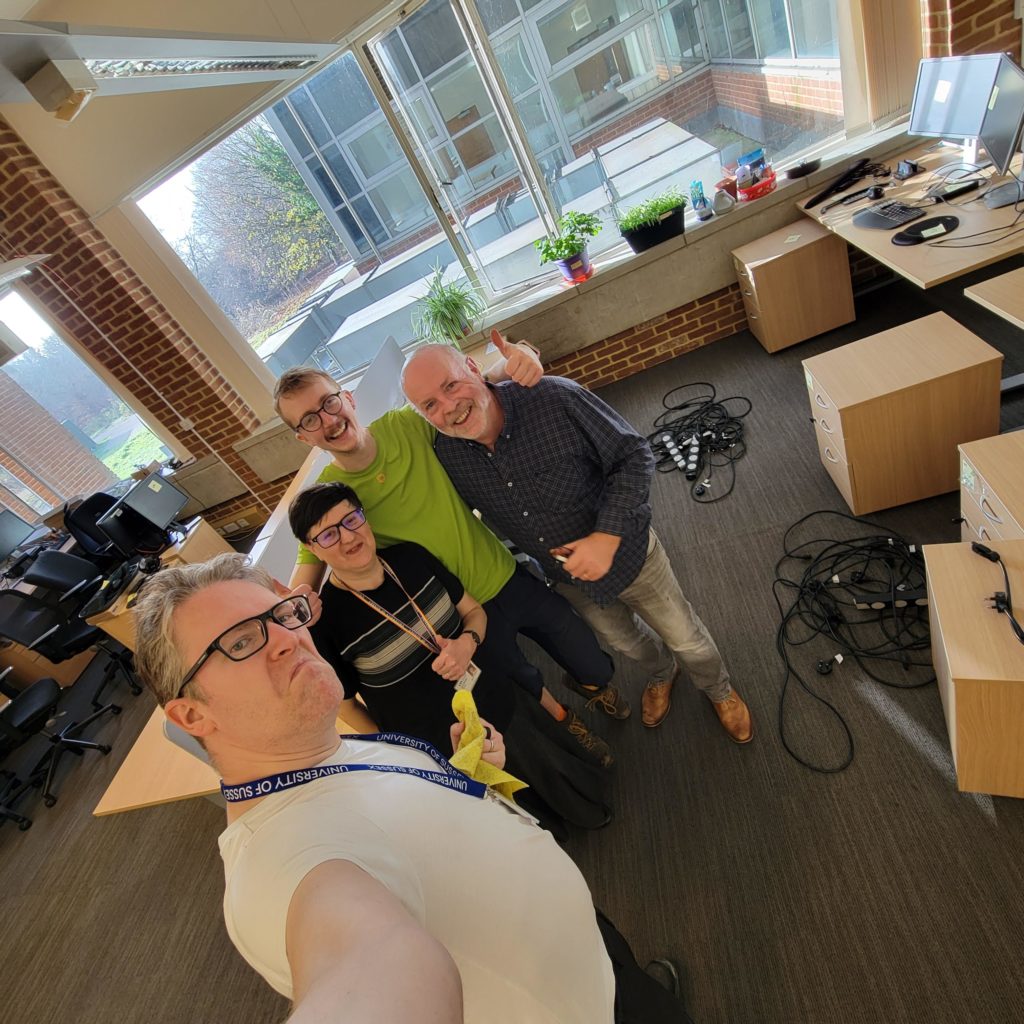
Top: George Robinson (Senior Learning Technologist), Chris O’Reilly (Learning Technologist).
Middle: Simona Connelly (Academic Enhancement Officer).
Bottom: Simon Overton (me, pulling a silly face!)
As we settled into our new space, we set out to foster a culture of sustainability within our team. Inspired by the diverse countries of origin within EE and indeed the student body at Sussex, we devised a map highlighting different zones based on natural light and temperature variations. Each desk was given a name, fostering a sense of connection to our surroundings and encouraging mindfulness of our energy usage. The map was inspired by Tolkein’s Lord of the Rings and hangs in our office for visitors to enjoy.
In our quest to repurpose and reduce waste, we got creative. Old desktop computers, once destined for the landfill, found new life as monitor risers, wrapped up as jolly birthday presents. This not only gave new purpose to discarded electronics but also served as a reminder of our commitment to finding innovative solutions to environmental challenges. We also avoided needing to buy plastic risers from Amazon and everything that entails. The only new things we did introduce were plants, one for every desk, to brighten things up and provide a bit of natural air purification.
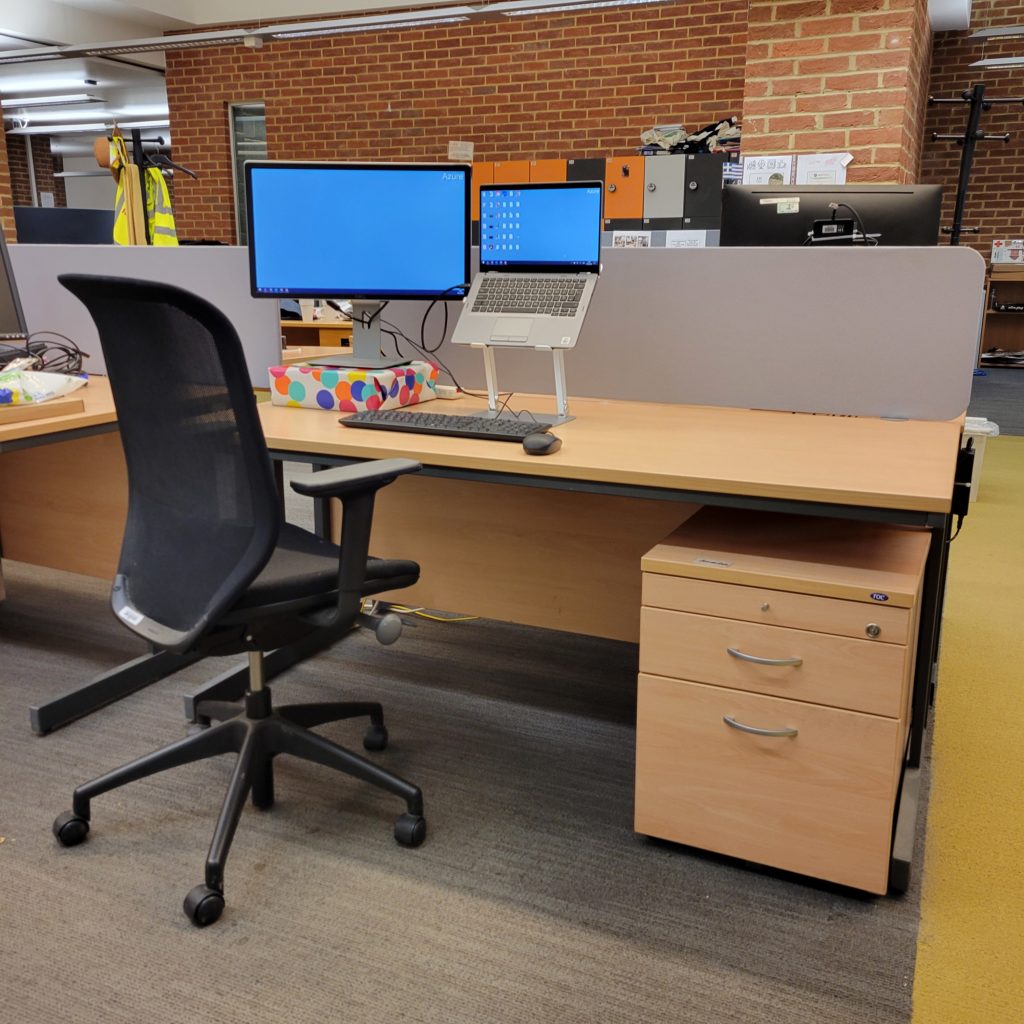
Another area of focus was our office kitchen, or “Teaspoon Island” as it was named. Single-use items became a thing of the past as we embraced reusable alternatives. A simple system for washing up teaspoons and replacing shared tea, coffee and milk not only minimises waste but also promotes a sense of responsibility among team members to participate actively in our sustainability efforts. In addition, we created a sustainability station – a hub for all things eco-friendly. Here, team members can swap books, share tools and parts to repair bikes, and find reusable shopping bags, fostering a culture of resourcefulness and community while reducing our environmental footprint.
Perhaps one of the most impactful changes we made was transitioning all desks to hot desks equipped with easily accessible power points. We reduced power strips to four gangs per desk (there had been 8 to 12 gang strips hardwired to each desk prior to that) and fitted each one with USB-C docking hubs, attached to the back of the monitors. All plugs are now at desktop level and are labelled, making it quick and easy to switch off items that are not in use. This empowers team members to monitor and manage their energy usage, and encourages a collective effort to reduce tech that is on standby.
As we reflect on our journey to transform our office into a little green oasis, we recognise that sustainability is not a destination but a continuous journey. While we’ve made significant strides, there’s always more we can do to reduce our impact on the planet whether that be exploring alternative energy sources or further minimising waste. In embracing sustainability, we’ve not only improved our environmental stewardship but also cultivated a workplace that fosters creativity, collaboration, and well-being. Our “GrEEn Office” isn’t just a physical space; it’s a testament to our dedication to building a brighter, more sustainable future for generations to come.
If you would like to get in touch with EE about our sustainable office, or any matters regarding Educational Enhancement, please email educationalenhancement@sussex.ac.uk or visit staff.sussex.ac.uk/teaching/enhancement
This post was written with help from Chat GPT.


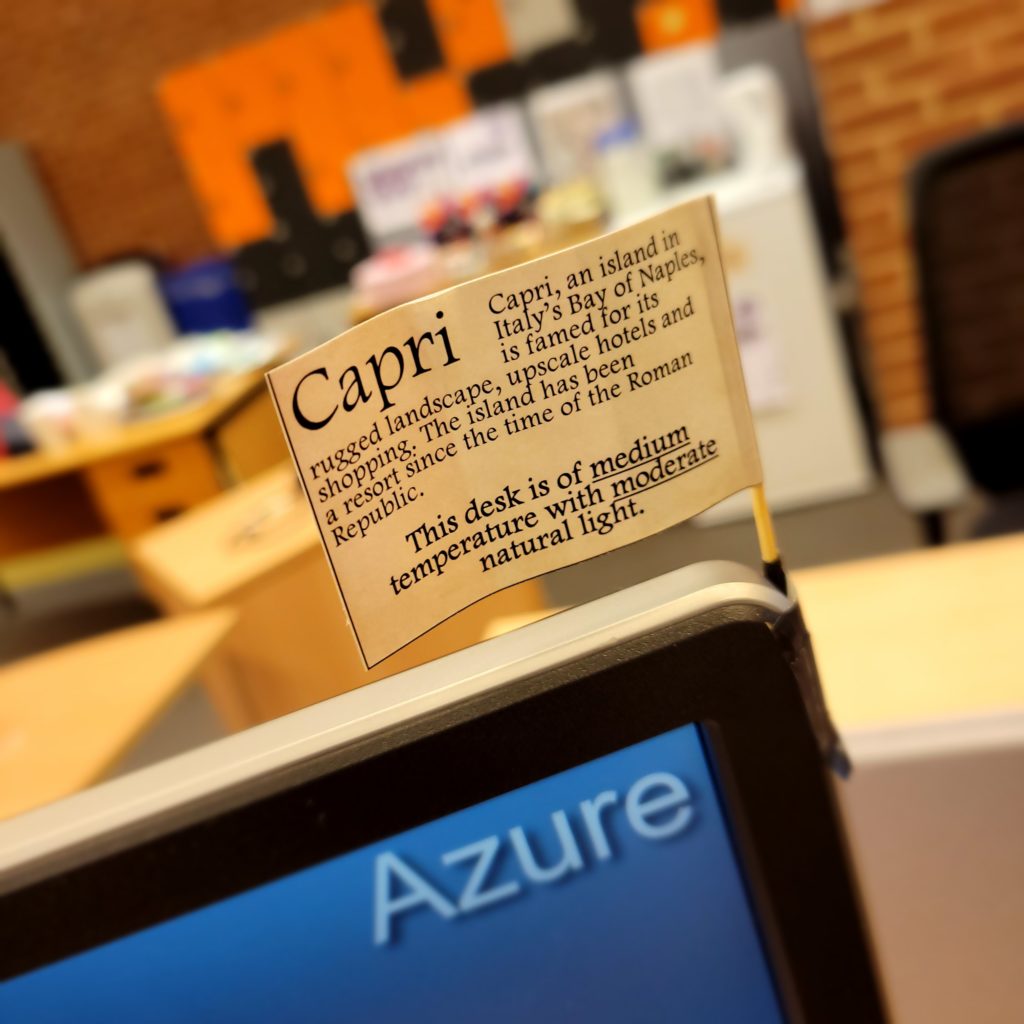
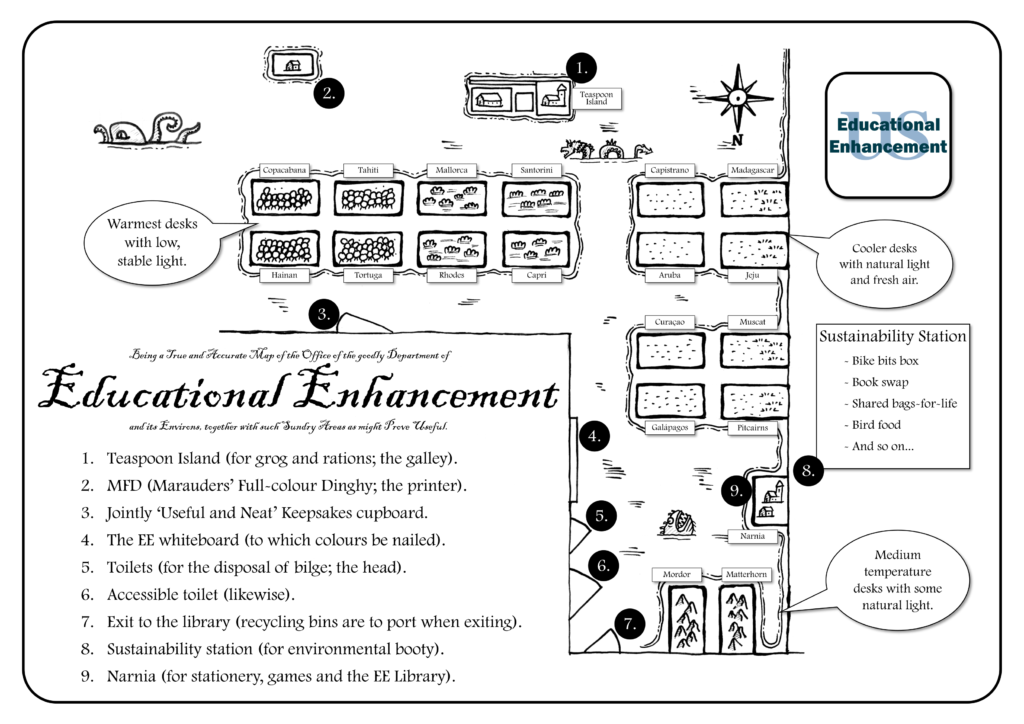
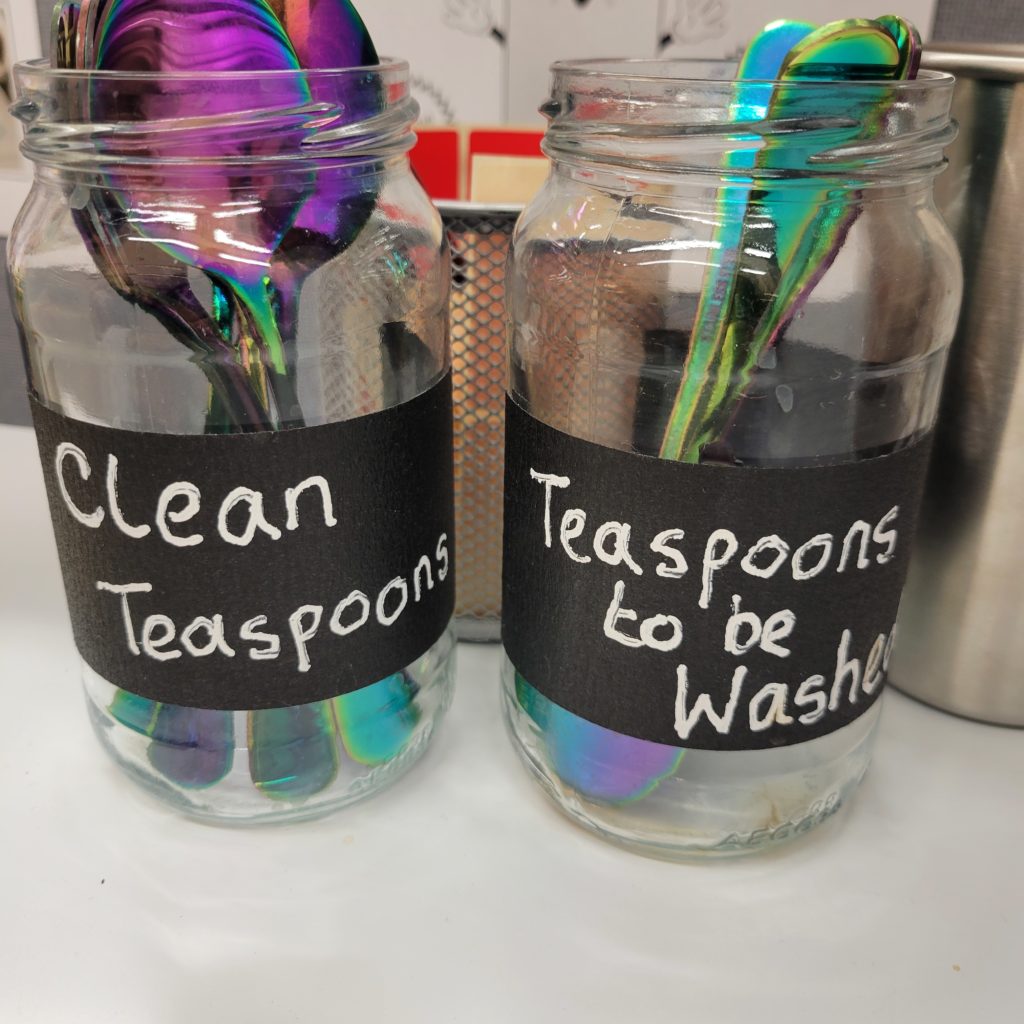
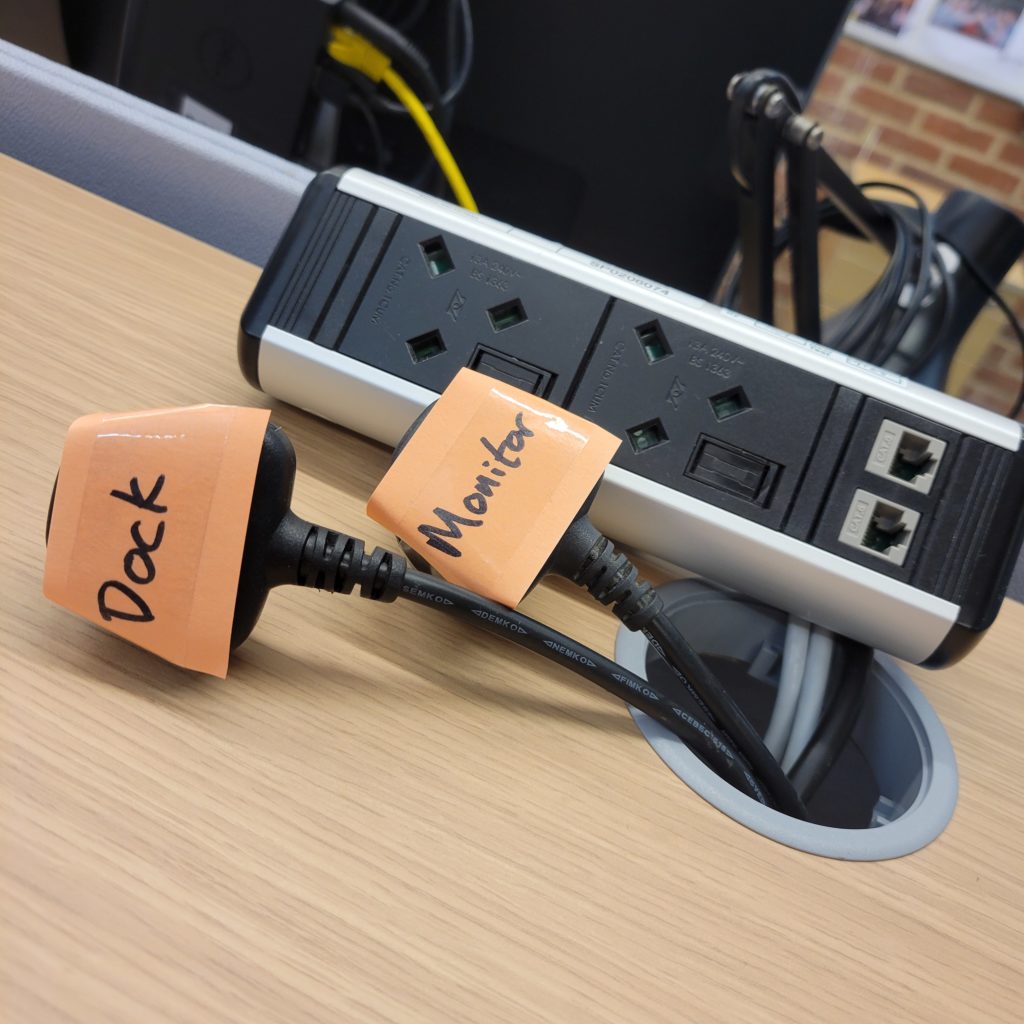

Leave a Reply